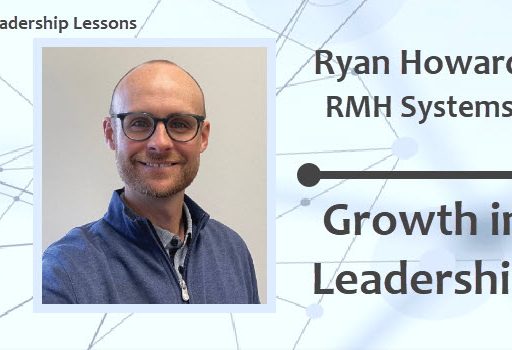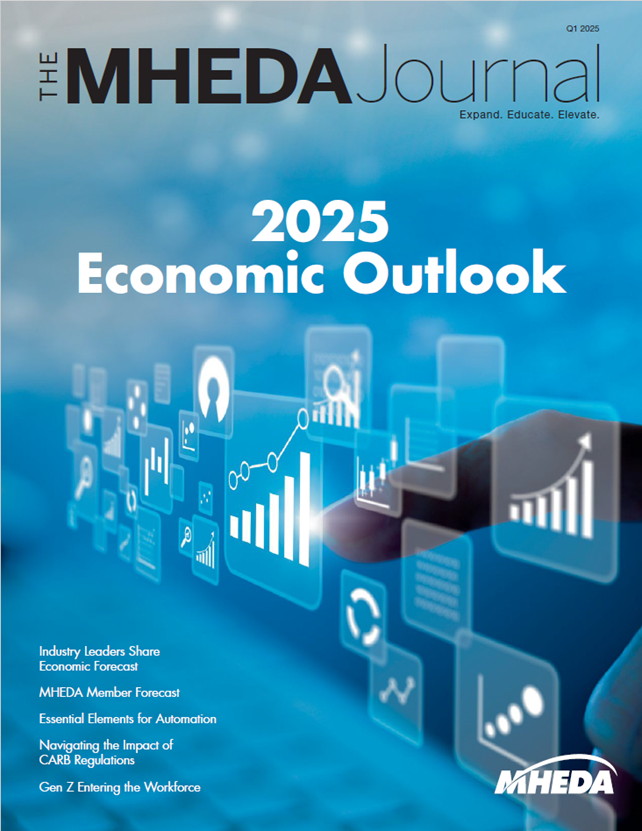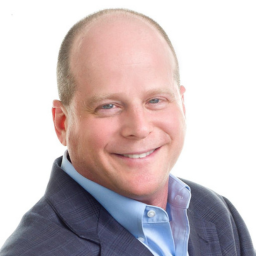Ryan Howard of RMH Systems Shares His Industry Expertise on Growth in Leadership
Ryan Howard has had an exciting and successful career in the material handling industry and has a background in healthcare administration as well. He went to graduate school for his master’s degree in healthcare administration and spent four years working at Lurie Children’s Hospital of Chicago. After being the administrative director of the pediatrics department, Howard began to explore the possibility of joining the family business. In 2015, he started as the director of business development at RMH Systems. After acquiring a competitor, he and his wife moved to Minneapolis. He has been the general manager of the Minnesota offices for almost seven years. He became the president of the company in January of 2021.
Growth in leadership is about learning from those who have paved their way in the industry. The MHEDA Journal sat down with Howard to see what we could all learn.
TMJ: What changes have you witnessed during your tenure, and what things have stayed constant?
Howard: In my eight years at RMH, we’ve evolved tremendously as a company, and the world we work in has changed immensely.
- RMH – RMH has changed in a variety of ways. We’ve grown. In the last 10 years, we have more than tripled in revenue and employee size. With that type of growth, processes and procedures naturally change. Our business offerings have evolved. For the first two decades of our family’s ownership, we were purely an equipment distributor. We’ve made a concerted effort to pursue engineered systems and that piece of the business now makes up over 40% of our company. We have always been a sales and service organization, but most of our hires over the last five years have been engineers and project managers. We’ve built this business so we can be a true one-stop shop for our customers. RMH wants to be the one phone call our customer base needs for industrial automation and equipment. In 2019, we added a robotics division and have been working hard to build that business. To shift into an engineering and automation house, new processes and procedures need to be adopted. Risk management becomes much more important. We needed to put new people into new oversight roles to cover our respective areas. We’ve had to build a strong leadership team to guide the constant evolution. All the while, making sure we keep our primary focus on the retention of our great employee base.
- The Industry – The working world has flipped upside down since 2020. Many businesses, RMH included, have had to figure out how to operate digitally in a hybrid environment. We adopted new technology, new hiring methods, remote work, etc. Our customers wanted to do business in a different manner; we couldn’t get in the door to scope out projects. Our way of doing business was forever impacted.
- Stayed the same – To that point, what didn’t change was the most important factor for RMH Systems. The way we operated had to change, but who we are as a company and how we conducted ourselves did not. Our culture has always been strong. We’ve expanded to five states across the Midwest, which has made it increasingly challenging. We now have four generations of people working for RMH and almost half are millennials or younger. As the traditional business practices began to crumble, the pillars of our culture stood strong. Trust your people. Do not micromanage. Make informed decisions. Invest in your operation. Be diligent in your hiring. Be Loyal. Ask questions. Have fun. My grandfather began instilling a culture of empowerment and trust 32 years ago. That hasn’t changed and it never will. That is what has held firm through our evolution. It is the key reason why we have experienced less than a 3% turnover ratio year over year for a decade now.
TMJ: In three words, how would you describe your leadership style?
Howard: Hard-working. Alpha Male. Merciless. Jackhammer. Insatiable – Just kidding, that’s a Dwight Schrute quote. Three words that describe my leadership style are engaged, strategic and compassionate. If you need a true leadership style definition, I probably fall into the transformational or democratic category.
TMJ: What was one of the biggest challenges you ever faced and how did you address it?
Howard: I don’t know that I can point back to one instance as the hardest. What I do know is that the hardest issues are personnel issues. Who to hire, who to keep on the team, re-structuring teams, motivating behavior, performance reviews, coaching, etc. Personnel management is the hardest responsibility we have as leaders. The time, investment and impact of our personnel decisions are second to none. Hiring, specifically, is the most challenging thing we do. Since I joined in 2015, our company has gone from 50 employees to 130. It hasn’t been easy and we’ve had to make some very difficult decisions.
Most strong leaders have good instincts. Trust your instincts. If there is some doubt in your gut about someone, trust it and move on. Many of my hiring mistakes could have been avoided had I trusted my gut initially. Your culture will be your foundation for growth and success or your ultimate demise. The crew has to represent your strong culture consistently and live up to your core values. If an individual does not, it’s imperative to move on.
TMJ: What advice would you give to an emerging leader or someone new to the industry?
Howard: Be present and involved. Leaders must understand the business and the people involved. You cannot do either, to a significant level, without a consistent, intentional presence and involvement. Spend time with everyone in the company, ask questions and listen. There is so much distraction out there that being present can be a challenge. This is even more important when you get to a position of leadership. Leadership is a privilege – be confident and stay humble, optimistic and open.
TMJ: What is the best business advice you have ever received and from whom?
Howard: I am lucky to have some very strong role models in my life. My dad and grandpa are very savvy businessmen and very good people. They’re individuals that lead by example on a daily basis. I have learned more from observing their actions and decision-making than a bunch of sage nuggets of advice. One thing does stick out that I have heard both recite before: “Common sense should prevail.”
A lot of times we overthink, over complicate or overreact. Practicality and common sense should own the day.
TMJ: How do you manage the various generations in the workforce?
Howard: A lot gets published about the different motivations among the generations. I believe there is some truth to it, but I more firmly believe that all generations are motivated by the same core things when it comes to work:
- To be valued and included
- To be trusted with their responsibilities
- To be working towards something bigger than themselves
- To improve their lives (which means different things for everyone)
I wouldn’t say we have some scientific secret sauce or that we’re perfect, but we don’t overcomplicate things either. People who work at RMH are trusted to do the right thing and grow the business. Our folks are not micro-managed. Our team is compensated fairly and competitively. Our people have a say at the table.




